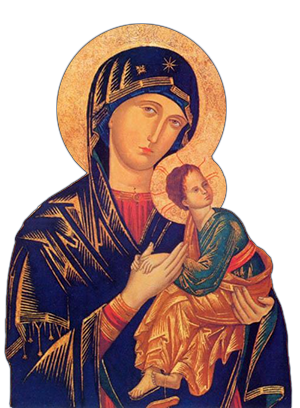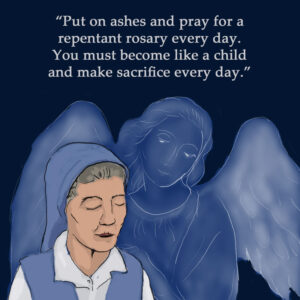Editorial: Notre Dame and the death of holy things

Incendie Notre Dame 21h00 photo by Bouette / Creative Commons
(photo cropped and color adjusted)
And it was almost the sixth hour; and there was darkness over all the earth until the ninth hour. And the sun was darkened, and the veil of the temple was rent in the midst. And Jesus crying out with a loud voice, said: Father, into thy hands I commend my spirit. And saying this, he gave up the ghost. Now the centurion, seeing what was done, glorified God, saying: Indeed this was a just man. And all the multitude of them that were come together to that sight, and saw the things that were done, returned striking their breasts.
Luke 23:44-48
There is a final mercy in the destruction of holy things; at that most sorrowful moment when a purely innocent thing is seemingly without power, and perishing; it is when the bystanders who would otherwise avert their eyes can look uninhibited upon the perfect beauty that is burning up before them; the feeling of aversion having given way, at last, to the question of what it is that dies.
Most of us will not seek the truth until our death, but we may find it unexpectedly in the death of another, which affords so much more time to realize what it means for something to be true; the actual being of it, and more importantly, our relationship to this truth.
We are, as you are; stunned, and struck with sadness at the sight of a Notre Dame Cathedral of France, the eldest daughter of the Church, burning.
Fire engulfs centuries old artistry, from a time when man was uniquely capable of beauty, and also dedicated to creating it at a long cost to his short life; and now it is so violently devoured by flames and spit out as smoke into the thick carbon sky. The hour is one of darkness.
We recall that most famous saint of France had a particular antipathy for burning, and she had complained bitterly of this fate during her trial. Here she is quoted before being burned at the stake:
“Alas! that my body, clean and whole, never been corrupted, today must be consumed and burnt to ashes!”
St. Joan of Arc
She died looking up at a crucifix, which they placed above her at her request. She was 19 years old.
What possible good is it that something beautiful, and whole, and incorrupt be burnt to ashes?
There are two goods, at least. There is, for the saint, the final humiliation that will merit glory in heaven. And there is for us, the onlookers, a final spectacle: to see the instrument of God at her most vulnerable moment.
What seemed so different, so hopelessly alien, is most relatable in death: the great equalizer, affording us our best opportunity to empathize with one of our kind, to put aside old disputes, to lay down our arms, and grieve together our common end.
Death, and our natural fear of it, is the very basis of the Gospel. It is death that we triumph over. It is death which brings us into true life.
Therefore because the children are partakers of flesh and blood, he also himself in like manner hath been partaker of the same: that, through death, he might destroy him who had the empire of death, that is to say, the devil: And might deliver them, who through the fear of death were all their lifetime subject to servitude.
Hebrews 2:14-15



